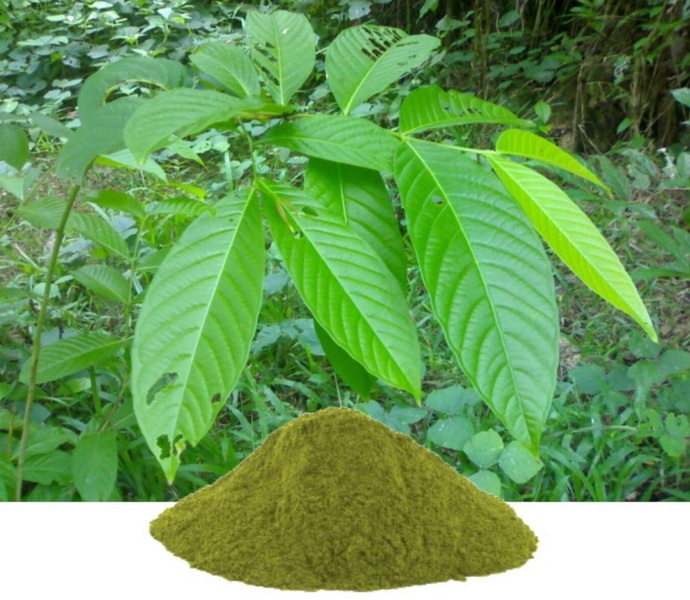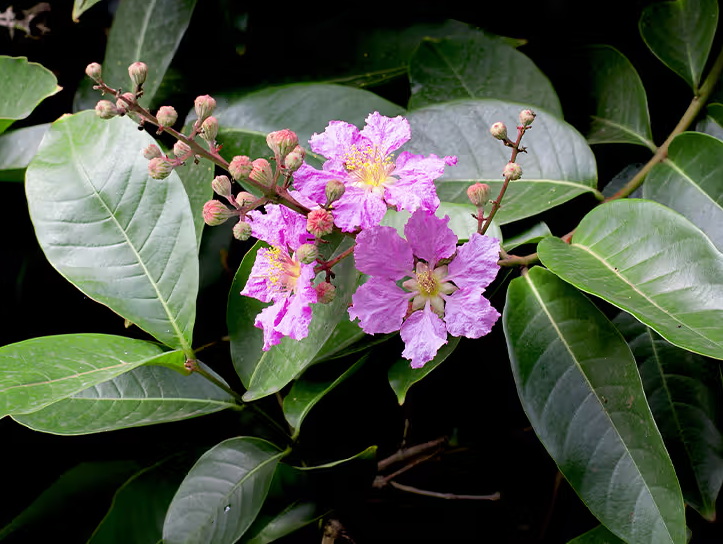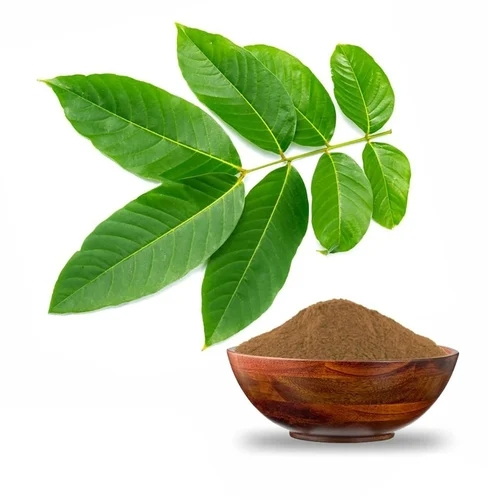Content Menu
● Introduction to Banaba Leaf Extract
● Benefits of Banaba Leaf Extract
>> 1. Blood Sugar Regulation
>> 2. Antioxidant Properties
>> 3. Weight Management
>> 4. Cardiovascular Health
>> 5. Protection Against Kidney Damage
● Potential Side Effects and Precautions
● Dosage and Preparation
● Cultural Significance and Traditional Use
● Future Research Directions
● Integration with Modern Health Practices
● Conclusion
● Frequently Asked Questions
>> 1. What are the primary benefits of Banaba leaf extract?
>> 2. How does Banaba leaf extract help with blood sugar regulation?
>> 3. Can Banaba leaf extract aid in weight loss?
>> 4. Are there any potential side effects of using Banaba leaf extract?
>> 5. How should Banaba leaf extract be prepared and consumed?
● Citations:
Banaba leaf extract, derived from the Lagerstroemia speciosa tree, has been a cornerstone of traditional medicine in Southeast Asia for centuries. Its popularity stems from its diverse health benefits, including blood sugar regulation, antioxidant properties, weight management, and more. This article delves into the uses, benefits, and potential side effects of Banaba leaf extract, providing a comprehensive overview of its applications in modern health practices.

Introduction to Banaba Leaf Extract
Banaba leaves are known for their rich content of corosolic acid, ellagic acid, and other bioactive compounds that contribute to their medicinal properties. The extract is often used in the form of capsules, powders, or teas, making it accessible for various health needs. The Lagerstroemia speciosa tree is native to tropical regions of Asia and is also known for its beautiful purple flowers, which are often used in landscaping.
Benefits of Banaba Leaf Extract
1. Blood Sugar Regulation
Banaba leaf extract is renowned for its ability to regulate blood sugar levels, primarily due to corosolic acid, which mimics insulin by facilitating glucose uptake into cells. Studies have shown that it can significantly reduce blood sugar levels in individuals with type 2 diabetes. This effect is particularly beneficial for those seeking natural alternatives to manage their blood sugar levels.
2. Antioxidant Properties
Banaba leaves are rich in antioxidants like ellagic acid and gallic acid, which help neutralize free radicals, reducing oxidative stress and cellular damage. This antioxidant activity supports overall health by protecting against oxidative stress-related conditions such as cancer, neurodegenerative diseases, and cardiovascular diseases.
3. Weight Management
Emerging research suggests that Banaba leaf extract may aid in weight management by regulating blood sugar levels, which can reduce cravings and prevent overeating. Additionally, it inhibits adipogenesis and lipogenesis, processes involved in fat cell formation. This dual action makes it a promising natural supplement for those seeking to manage their weight.
4. Cardiovascular Health
Banaba leaf extract may contribute to cardiovascular health by preventing blood clot formation, which is a risk factor for high blood pressure and stroke. Its antihypertensive effects can also help manage blood pressure levels, reducing the risk of cardiovascular diseases.
5. Protection Against Kidney Damage
The antioxidants in Banaba leaf extract may offer protective benefits for the kidneys, particularly against damage induced by chemotherapy drugs. This protective effect is significant for individuals undergoing cancer treatment, as kidney damage is a common side effect of many chemotherapy agents.

Potential Side Effects and Precautions
While Banaba leaf extract is generally considered safe, some users may experience gastrointestinal side effects like loose stools. It is essential to consult a healthcare provider before using Banaba extract, especially if you have underlying health conditions or are taking medications. Pregnant or breastfeeding women should also consult their healthcare providers before use.
Dosage and Preparation
Banaba leaf extract can be consumed in various forms, including capsules, teas, or powders. The recommended dosage varies, but typical ranges are between 10 to 48 mg of standardized extract per day. For teas, using 4 to 6 dried leaves per cup is common. It is advisable to start with a low dose and gradually increase as needed and under medical supervision.
Cultural Significance and Traditional Use
In traditional medicine, Banaba leaves have been used for centuries not only for their health benefits but also for their cultural significance. In some Asian cultures, the leaves are used in rituals and ceremonies, symbolizing good health and prosperity. This cultural significance highlights the importance of Banaba leaves beyond their medicinal properties.
Future Research Directions
As research continues to uncover the full potential of Banaba leaf extract, there is a growing interest in exploring its applications in modern medicine. Future studies may focus on its efficacy in managing chronic diseases, its interaction with other medications, and its potential as a natural remedy for emerging health challenges.
Integration with Modern Health Practices
Banaba leaf extract is increasingly being integrated into modern health practices as a complementary therapy. Its natural origin and potential health benefits make it appealing to those seeking holistic approaches to health management. However, it is crucial for healthcare providers to be aware of its potential interactions with conventional medications to ensure safe use.
Conclusion
Banaba leaf extract offers a range of health benefits, from blood sugar regulation and antioxidant support to weight management and cardiovascular health. While it is generally safe, users should be aware of potential side effects and consult healthcare professionals before use. As research continues to uncover its full potential, Banaba leaf extract remains a promising natural remedy for various health needs.

Frequently Asked Questions
1. What are the primary benefits of Banaba leaf extract?
Banaba leaf extract is primarily known for its ability to regulate blood sugar levels, provide antioxidant support, aid in weight management, and offer cardiovascular benefits.
2. How does Banaba leaf extract help with blood sugar regulation?
Banaba leaf extract contains corosolic acid, which mimics insulin by facilitating glucose uptake into cells, thereby reducing blood sugar levels.
3. Can Banaba leaf extract aid in weight loss?
Yes, Banaba leaf extract may aid in weight loss by regulating blood sugar levels, which can reduce cravings and prevent overeating, and by inhibiting fat cell formation processes.
4. Are there any potential side effects of using Banaba leaf extract?
Common side effects include gastrointestinal issues like loose stools. It is advisable to consult a healthcare provider before use, especially if you have underlying health conditions.
5. How should Banaba leaf extract be prepared and consumed?
Banaba leaf extract can be consumed as capsules, powders, or teas. For teas, using 4 to 6 dried leaves per cup is common. The recommended dosage for standardized extracts varies but typically ranges from 10 to 48 mg per day.
Citations:
[1] https://naturmedscientific.com/banaba-leaf/
[2] https://www.youtube.com/watch?v=bksAiuRzAaY
[3] https://citeseerx.ist.psu.edu/document?repid=rep1&type=pdf&doi=6d9608112538499efdfda645b6b0859e510f23a5
[4] https://pmc.ncbi.nlm.nih.gov/articles/PMC3468018/
[5] https://www.youtube.com/watch?v=-HqJNaTCEiw
[6] https://pubmed.ncbi.nlm.nih.gov/22095937/
[7] https://www.drugs.com/npp/banaba.html
[8] https://www.youtube.com/watch?v=Z6dNsSxtcmc
[9] https://www.liebertpub.com/doi/pdfplus/10.1089/jmf.2021.0039






























